Exclusive: Contador considers creating his own team to race one last season
Spaniard reveals he could race on with his own professional team in 2017
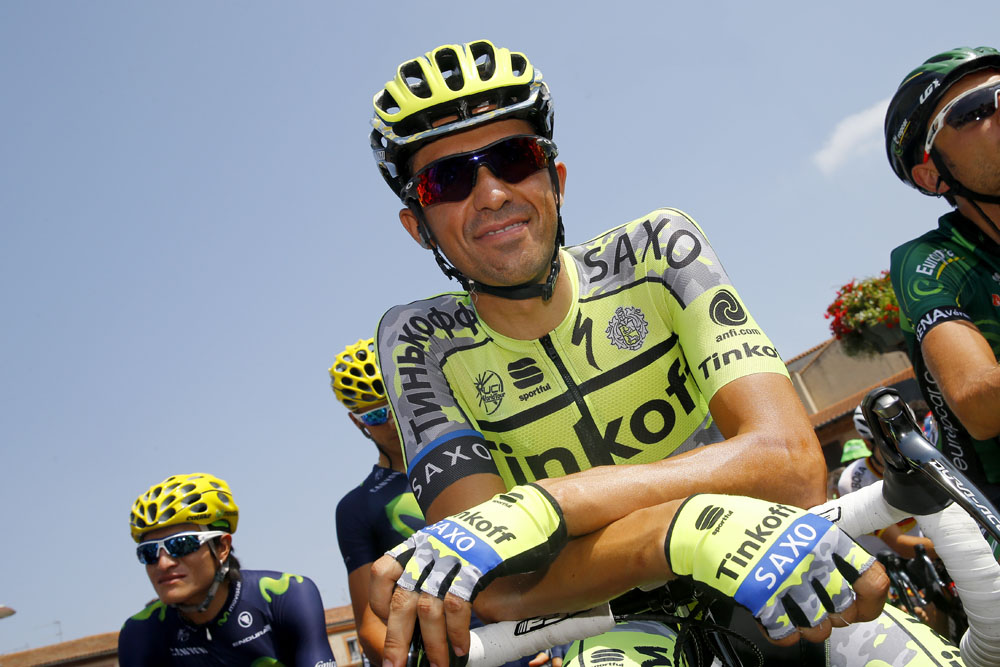
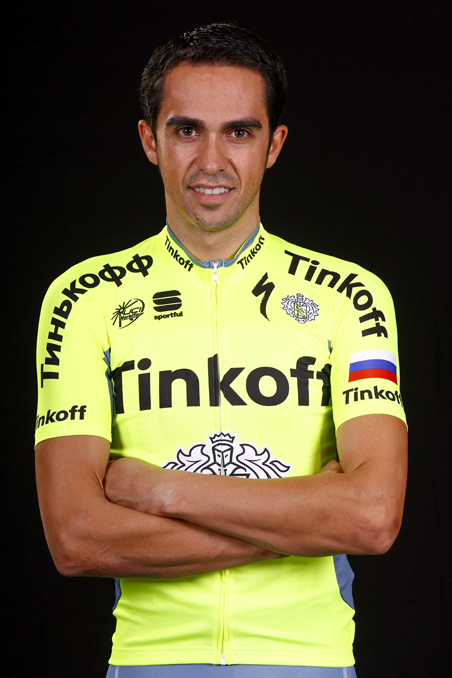
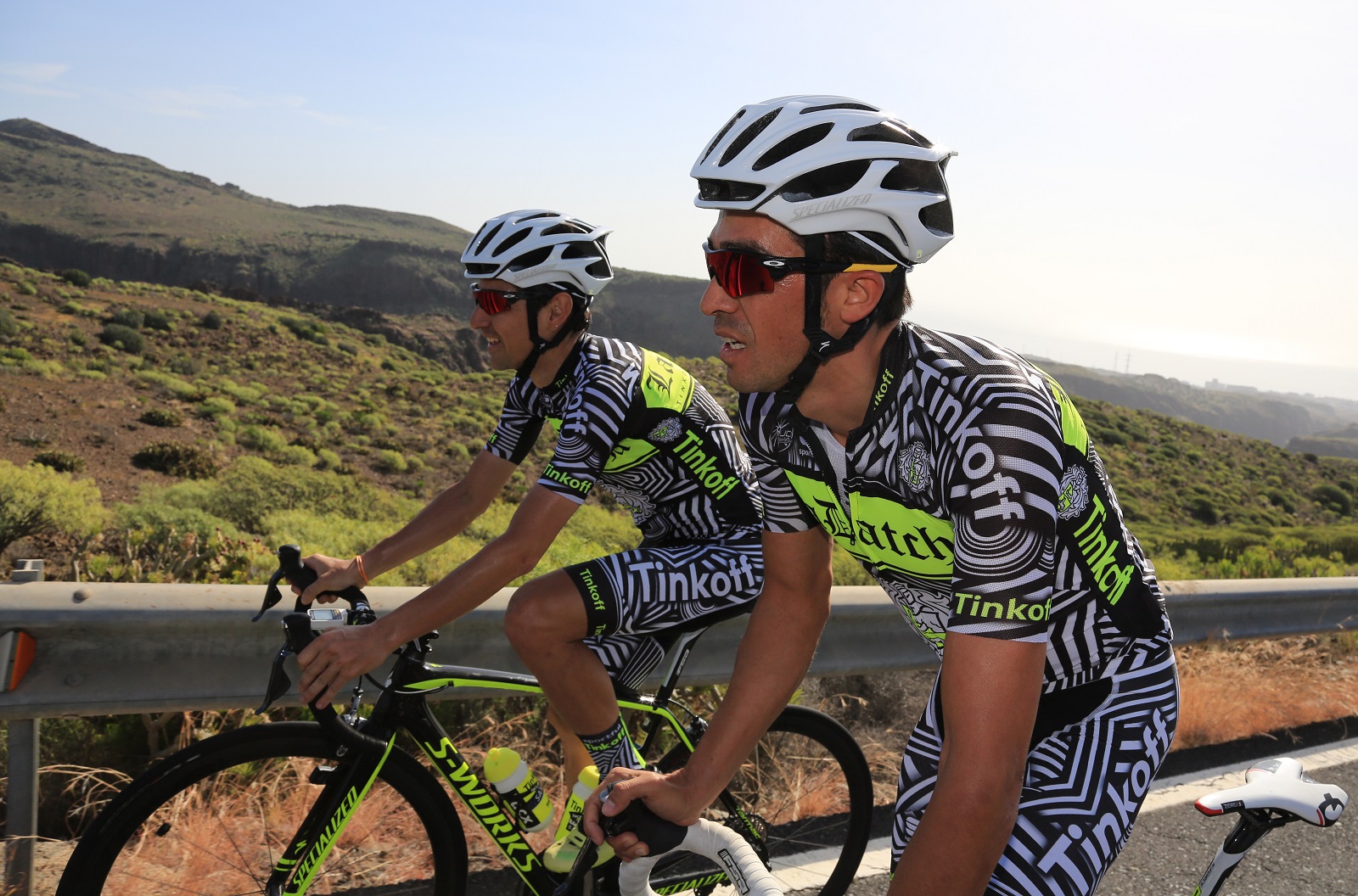
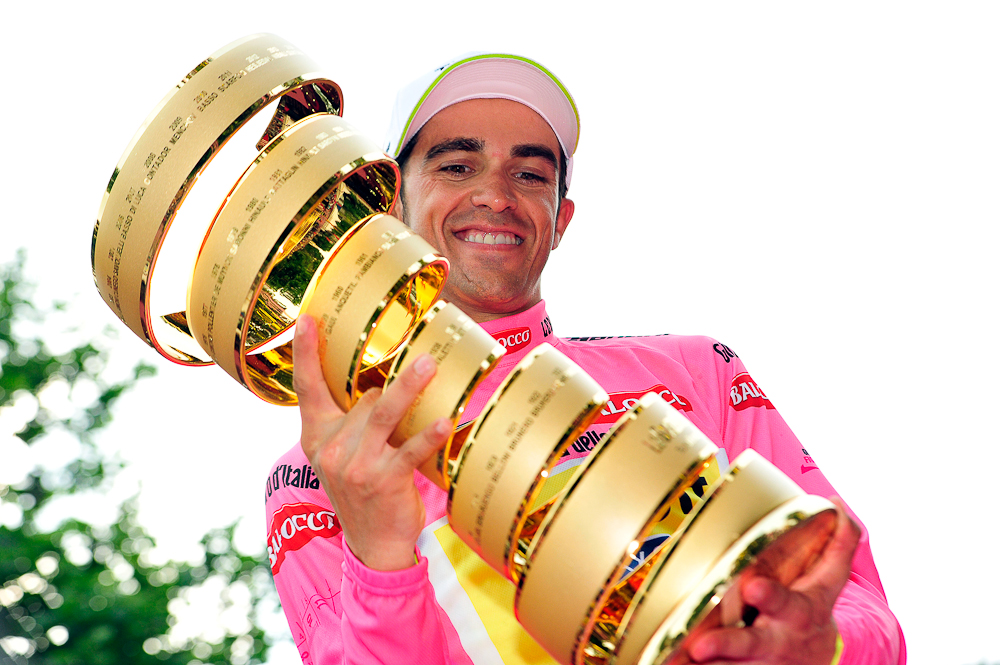
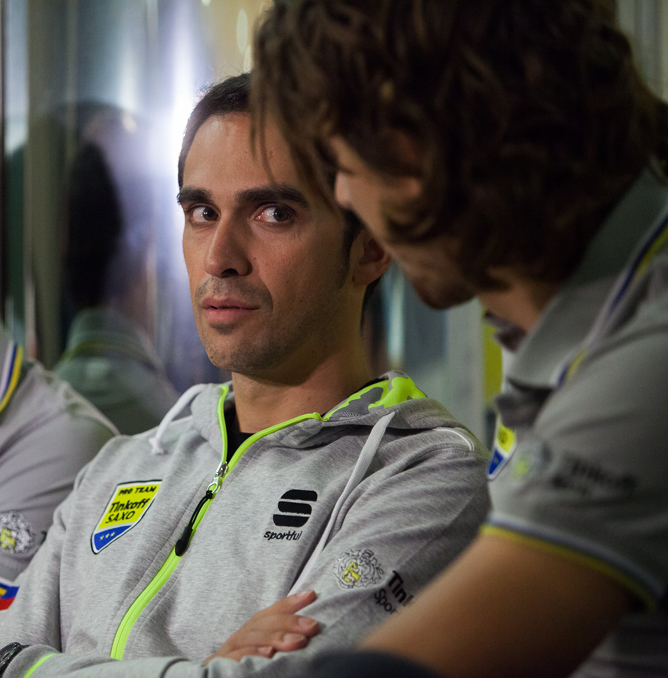
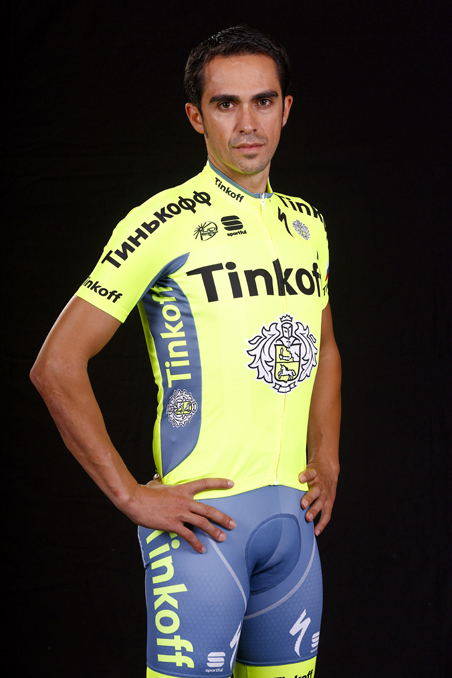
Following the presentation of his Foundation teams in Pinto near Madrid earlier today, Alberto Contador (Tinkoff) will head to Portugal for the Volta ao Algarve, the first race of what is scheduled to be his last season at WorldTour level but could also be a stepping stone to his post-racing career.
In an exclusive interview with Cyclingnews, the Spanish Grand Tour specialist continues to leave the door open to racing on into 2017, takes a detailed look at his season and strategy before the Tour de France and explains why the pressure on him to perform never seems to ease.
During Monday’s presentation of his Foundation teams in his home town of Pinto, Contador confirmed he is mulling over plans to create his own professional team in 2017 from his Foundation set-up, and did not rule out himself out as a potential team leader for one extra season.
“I have two options in my head: One is to carry on if I suffer a mishap at the Tour, as I did in 2014, and the other is to launch a professional team,” Contador explained to the Spanish media, admitting the chances of him racing in 2017 could be as high as 50 per cent.
However, he described the idea of creating his own professional team as “complicated”, admitting he would need a budget of 15 million Euro to compete at WorldTour level. He also confirmed that he would only be interested in creating a team that would help him target the most important races.
Cyclingnews: There’s lots of talk about how important this year will be for Alberto Contador. But how significant is this season for your Foundation teams?
Alberto Contador: Well, it’s a big year for me and a big year for the Alberto Contador Foundation too. A lot of what were once our youngest riders have now worked their way up to the higher levels of our teams [Rh+ Polartec U-23 and junior squads] and they are really beginning to make a name for themselves. Our key sponsors, Polartec, Rh+ and Look bikes, are either new this year or much more heavily involved too. So it feels like an important year.
Get The Leadout Newsletter
The latest race content, interviews, features, reviews and expert buying guides, direct to your inbox!
CN: Spain is coming out of a lengthy, very damaging, economic recession. Is there still really such a big need for Foundations like yours in Spain if there’s supposedly more money floating around again to spend on sponsoring junior and U-23 teams?
AC: Yes, that need still exists. It’s easy to see that compared to when I was a junior and U-23 rider, there are far fewer cycling teams and far lower budgets in Spain, which doesn’t make the future of the sport in this country look at all good compared with the present. All the money I spend on the Foundation is money I’ll never see again, and I’ll never get back the time I spend on it either. But it’s money and time that produces a great deal of personal satisfaction for me because of what the Foundation is doing for cycling in Spain.
CN: So regardless of whether you hang up your wheels or not at the end of the season, the Foundation will continue in the short and even long term?
AC: Exactly. The Foundation is going to be around for a long time. It will go on growing and I expect it will take up a lot of my time in the future, too, particularly if the amateur squad finally does turn into a professional team.
CN: Talking about the future, over the last few weeks, has the percentage of the possibility that 2016 is your last season increased, decreased or stayed the same?
AC: It [my retirement] depends on a series of circumstances and on how the year plays out. But I’m certainly starting this season feeling very motivated, keen to get the ball rolling and then we’ll see what happens.
My numbers are looking good right now
CN: So what is your current form like?
AC: Good. I’ve got a good base of winter form and done some good training in the Canaries. What I’m lacking now as the Volta ao Algarve comes up for me, is racing and race rhythm, particularly compared to other riders who’ve already started their season. But looking ahead and at the Tour de France, I thought the best thing would be to start the season a little later. Overall things are looking very good.
CN: You said in a recent interview that you are training for this, possibly your last year as a pro, with as much dedication and intensity as when you started out. But given this could be your last year, does that thought of possible retirement inside your head mean that on an emotional level, you feel a different kind of motivation about racing in 2016?
AC: I don’t know yet, to tell you the truth. I’m a rider who puts myself under a lot of pressure in the races, because I always demand the absolute maximum from myself, I don’t understand how to race any other way. So I’ve always been under high pressure, whether I was in the last year of a contract or whether I’ve had three years to go. I can tell you I am even more professional than I used to be, because it’s got to the point in this sport where absolutely every single tiny last detail counts. So I’m getting more thorough, as each year goes by.
CN: Your physiological test data, you said recently, is better than it ever has been for this time of year. That must motivate you.
AC: I’m certainly very happy with how my ‘numbers’ [data] are looking right now. But whilst it’s true that maths and numbers play an increasingly important role in modern cycling overall, at the same time, the sport’s not all about that. However, my numbers are better than in previous years at this exact point in time, and that’s definitely a good thing.
CN: You’ve had some very tough years with allergies and hay fever and this year, being so dry a winter in Spain, it’s been much harder for hay fever sufferers. Has that been an issue for you this year?
AC: I’ve had real problems with hay fever in the Ardennes Classics and in the Giro d’Italia in the past, but never anywhere else. So far, this year, so good.
Major goals for 2016
CN: When your race schedule went public a couple of months back, you had the Volta ao Algarve, Paris-Nice, Volta a Catalonia, Pais Vasco, Dauphine, Tour de France and Olympic Games on it. Any changes there?
AC: No changes there and nothing added, either.
CN: So you could call it a fairly traditional approach path for you to the Tour?
AC: Yes. It’s one that’s suited me in the past and the way the races are spaced out allows me to make any little adjustments I might need to. There’s also a good period of rest after the first block of competition and then I can start firing up the motor in the Dauphine and reach the Tour de France as I would like. Last year, with such a different program of racing to the usual one, doing the Giro and Tour double, it was much more complicated to calculate my efforts and get the timing right.
CN: The first challenge of the year, in any case, will be the Alto de la Foia, the second category climb that’s the summit finish to Thursday’s stage two of the Volta ao Algarve, the last climb on a mountainous stage which will toughen up the race. Do you know that climb already?
AC: No. I’ve asked my Portuguese teammate Sergio Paulinho who’s from the area. He’s told me that it’s six percent, not too steep. I can’t tell you for sure, but I don’t think it will break up the peloton too much. I think as ever the [stage three] time trial and the Alto de Malhao climb on stage five will be the real deciders, particularly the time trial because it’s 18 kilometres of flat riding. If the stage two climb isn’t that hard, then a time trial that long is where guys like Tony Martin could really make a difference.
CN: And of all the races that precede the Tour de France, are there any that you have particularly in mind to try to win, like, say, the Criterium du Dauphine, which you haven’t yet won during your career?
AC: Well curiously enough, I want to go all out in all the races I do this year, barring the Dauphine! The Dauphine’s always been a race where I’ve got relatively poor form, but that’s on purpose, because that way I’ve got some margin to build up for the Tour de France, and this year, with the Olympics coming after the Tour, even more so. I want to be 100 percent in Paris-Nice, Catalunya and Pais Vasco, but in the Dauphine, I’ll be keeping some of my powder dry for July and early August. That’s not unusual. Obviously if you can win the Dauphine you try to. And in 2014 I came very close but it all fell to bits on the last day. But it wasn’t a pre-season objective. It’s all about reaching the Tour de France in top condition.
CN: What are your thoughts about the Tinkoff team roster for this year?
AC: We’ve got a lot of very experienced riders. We’re all concerned about Michael Rogers -who has an on-going battle with a heart condition. I’m hoping we’re all in great shape for the Tour de France because there are some really good riders for the Tour and if anybody does fall ill or something, it could be very important. But I’m very confident about our line-up in general.
CN: This is the last year you will be with Tinkoff, regardless of what your future brings. Does that change the way you look at the year?
AC: Oleg [Tinkoff, team boss and owner] has been working with me since 2012 and these last few years have been amongst the most important of my career. In these last four years, too, he’s been working very hard to defend cycling and fight for his team. I can’t think of a better way to say thank you to him for all of the time and effort he’s put into the sport, than for me to have a really great season.
Alasdair Fotheringham has been reporting on cycling since 1991. He has covered every Tour de France since 1992 bar one, as well as numerous other bike races of all shapes and sizes, ranging from the Olympic Games in 2008 to the now sadly defunct Subida a Urkiola hill climb in Spain. As well as working for Cyclingnews, he has also written for The Independent, The Guardian, ProCycling, The Express and Reuters.
